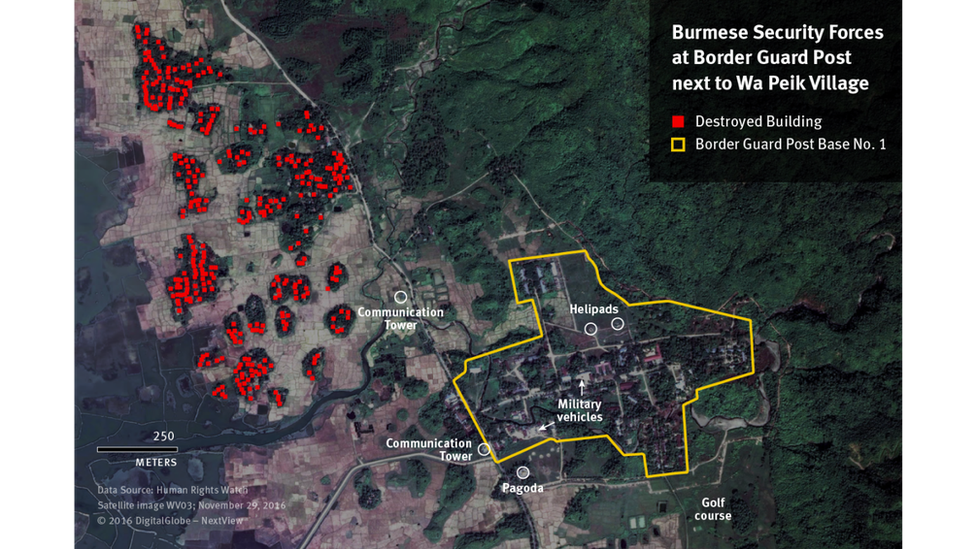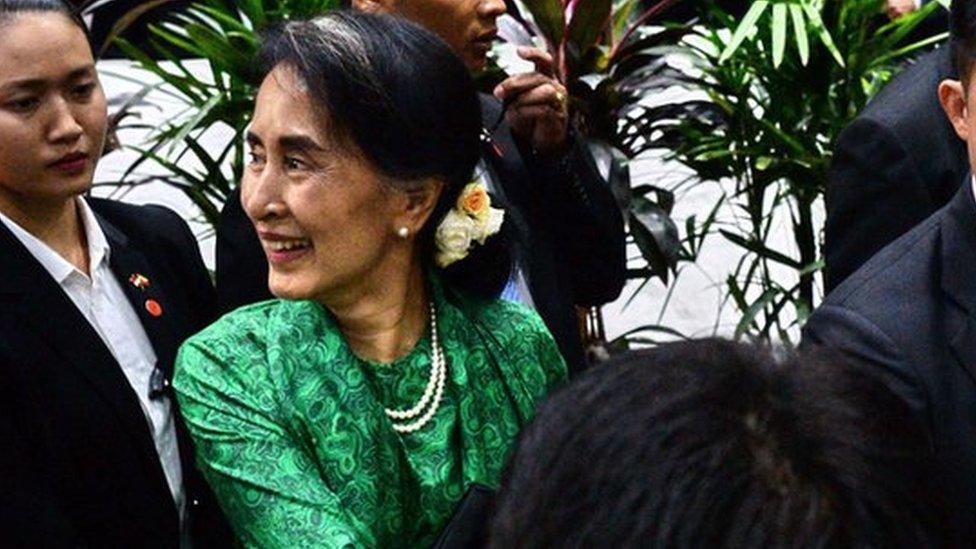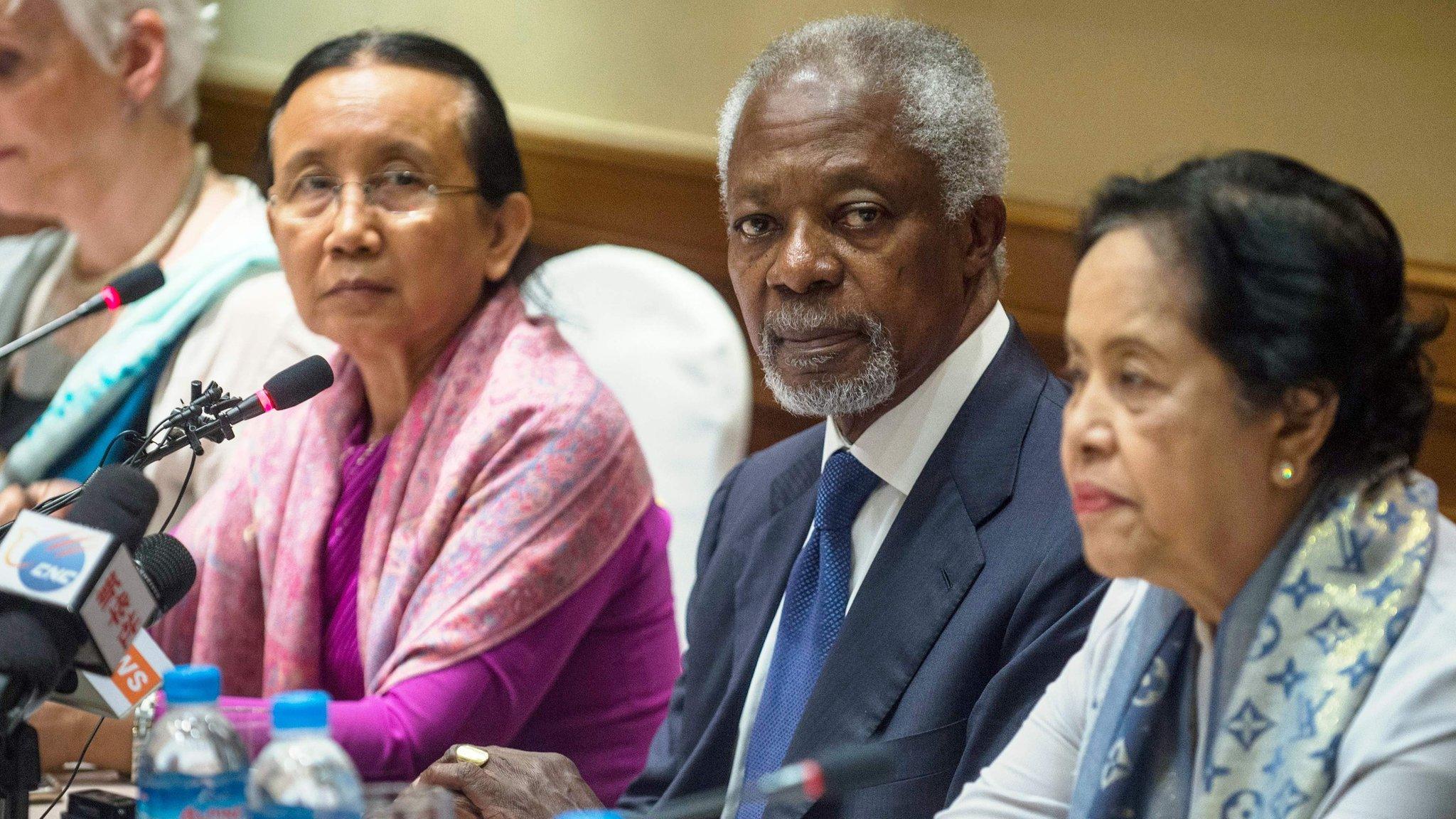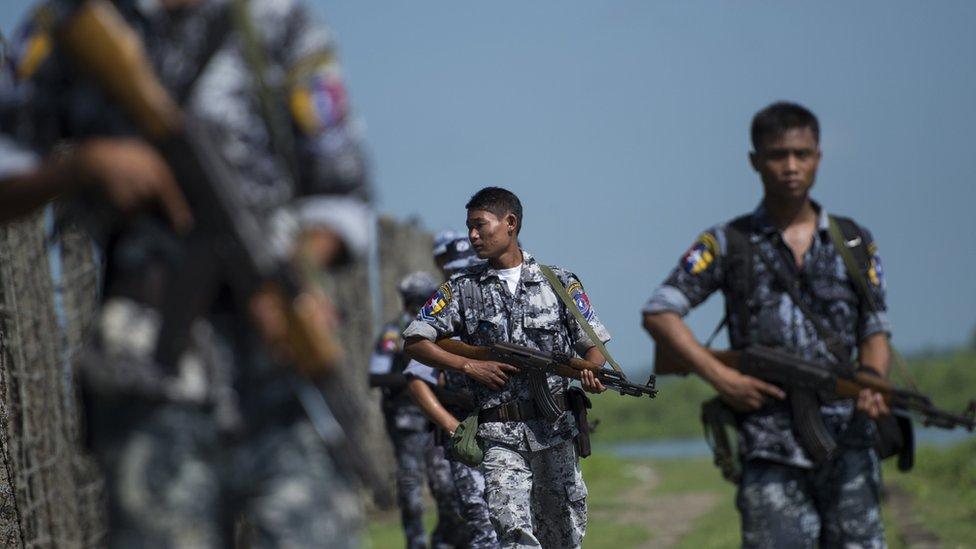Burmese army linked to Rohingya village arson, rights group says
- Published

Analysis of the images proves soldiers were in the area, HRW says
New satellite images establish a link between the Burmese army and the burning of Rohingya Muslim villages, human rights campaigners say.
Human Rights Watch (HRW) says, external it has analysed images of the Rohingya village of Wa Peik in Rakhine state.
According to HRW the images show that during the period when Wa Peik was being burned, there were military trucks active at a nearby army post.
This proves that soldiers were in the area, the group says.
"It's difficult to believe that militants burned down over 300 buildings in Wa Peik over a one-month period while Burmese security forces stood there and watched," said Brad Adams, Asia director of Human Rights Watch.
"Burmese government officials have been caught out by this satellite imagery, and it's time they recognise their continued denials lack credibility."
Asked about the allegations, the main government spokesman, Zaw Htay, said he would not be commenting as an investigation into events in northern Rakhine state was under way.
A government appointed team has spent the past few days visiting affected villages and is expected to release its findings at the end of January.
This is the third Human Rights Watch report on the current crisis and the burning of Rohingya villages. On previous occasions the government denied that soldiers were to blame, saying the Rohingya have been setting fire to their own homes to attract international sympathy.
The rights campaigners go on to say that their analysis of when and where the villages burned shows a methodical approach, making it more likely to have been carried out by the military.
Independent journalists have not been allowed into northern Rakhine since armed militants attacked border posts on 9 October, killing nine policemen. The area has been closed since then amid allegations of army atrocities against the Rohingya.
The latest figures from the United Nations show that since then 27,000 Rohingya have fled across the border into Bangladesh.
- Published10 January 2017

- Published6 December 2016

- Published21 November 2016
